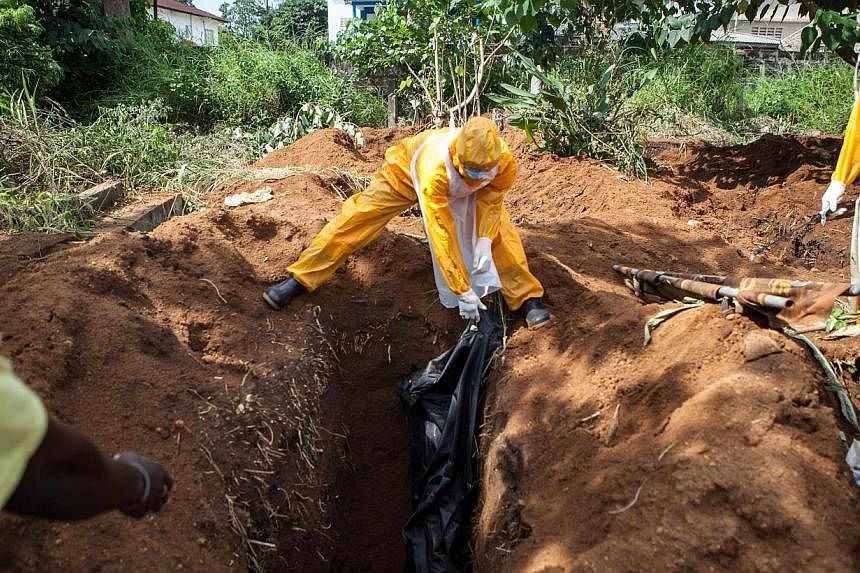UNITED NATIONS, United States (AFP) - Pledges of financial aid to fight Ebola have fallen far short of the US$1 billion (S$1.27 billion) needed by the United Nations, with only one quarter of the amount raised, a UN official said Friday.
UN Deputy Secretary-General Jan Eliasson also appealed for doctors, nurses and other health care personnel to come forward to work in desperately needed treatment centres to be set up in West Africa.
"Of the one billion dollars sought... only one quarter has been funded," Eliasson told the UN General Assembly.
Another US$20 million has been pledged separately for a trust fund set up by the UN to help pay for the international response to Ebola.
"We need more - we need much more," Eliasson said.
The UN official appealed to the 193-nation General Assembly for more money and resources as the World Health Organisation announced that the death toll had crossed the threshold of 4,000.
Liberia, Sierra Leone and Guinea continue to be the epidemic's epicentre, but this week saw the first Ebola death in the United States, while a nurse in Spain was fighting for her life after being infected while treating an Ebola patient who died.
The United Nations has appealed for US$1 billion to fund an international response that officials admit has been slow and has yet to catch up to the rapid-fire spread of the virus.
"Speed is of the essence," said Eliasson. "A contribution within days is more important than a larger contribution within weeks."
He called for a "surge" in trained health care personnel to set up treatment centres in West Africa, where hospitals and clinics have been overwhelmed with the caseload.
The UN's Ebola coordinator, David Nabarro, said the number of cases was doubling every three to four weeks and that a much greater effort was needed to beat back the deadly epidemic.
"Without this global movement, it will be impossible to get this disease quickly under control and the world will have to live with the Ebola virus forever," he warned.
Nabarro drew a list of what was needed: doctors and nurses to come in as teams to help start treatment centres, aeroplanes, helicopters, vehicles, motorbikes and boats to reach rural areas.
The fight against Ebola involves "just about every country in the world", he said.
Nabarro told the world body that there would be more requests "for cash because this is an expensive job."

